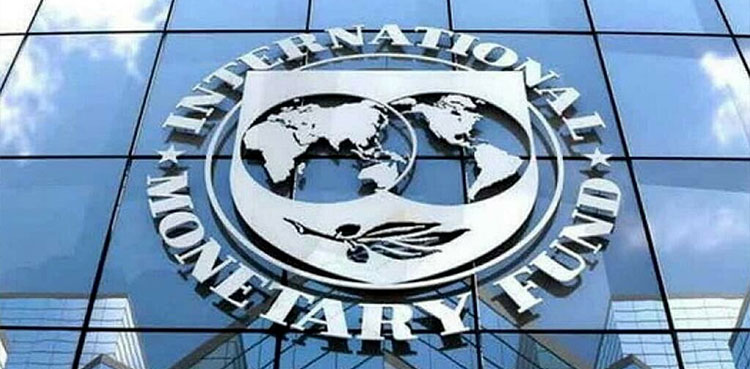
WASHINGTON: The consequences for the global financial system if Russia cannot pay its foreign debts are likely to be “limited,” a senior official at the International Monetary Fund said Tuesday.
The United States and its allies have imposed tough financial sanctions on Russia in retaliation for its invasion of Ukraine, but Moscow so far has made debt payments.
Still, concerns remain about its ability to continue to service its loans — especially after the May 25 expiration of a US exemption that allows the transactions.
“If there were a default, I think the direct effect on the rest of the world would be quite limited, because the numbers that we’re looking at are relatively small from a global perspective,” said Gita Gopinath, the number-two official at the Washington-based crisis lender.
“It is not a systemic risk to the global economy,” although some banks have “greater exposure,” she said in a discussion with Foreign Policy magazine.
The sanctions effectively have severed Russia’s ties to the global financial system, prohibiting most transactions except for debt payments and oil purchases.
The measures also froze the government’s stockpile of $300 billion in foreign currency reserves held abroad.
‘Very high’ default risk
Moscow last week avoided default after it made a $117 million interest payment on two dollar-denominated bonds, sending funds through JPMorgan and Citigroup, which confirmed with the US Treasury Department that the transactions were allowed.
The government had initially indicated it would make the payments in rubles, which debt ratings agencies said would be considered a default. However, some obligations allow payment in local currency.
A source close to the matter told AFP on Tuesday that JPMorgan received another $66 million payment in US dollars, although the source could not confirm if the funds had yet been sent to Citi.
But Moody’s Investors Services on Tuesday said the danger of a missed payment remains.
“Russia’s risk of default and potential for investor losses remains very high given the marked deterioration we have seen in the government’s ability and willingness to meet its debt obligations in recent weeks,” the debt ratings agency said in a report.
The report notes that Moscow has payments worth $100 million due on May 27, after the general exemption on such transactions expires.
“After that date, US residents will require a specific license to continue to receive debt repayments, which will further impair investors’ ability to receive sovereign debt repayments,” the report said.
Moody’s in early March cut Russia’s debt rating to Ca from B3, with a negative outlook.
S&P Global Ratings followed suit last week downgrading Russia to CC from CCC-, saying the country’s debt was still “highly vulnerable to nonpayment.”
A default would have serious implications for Russia, since reentering the credit market “is not that easy,” Gopinath said.
The government owes about $40 billion in dollar- or euro-denominated debt, though only half of that is held by foreign creditors — a relatively small amount given the size of the economy and its oil earnings.
Russia last defaulted on its foreign currency debt in 1918, when Bolshevik revolution leader Vladimir Lenin refused to recognize the obligations of the deposed tsar’s regime.
The government missed payments on domestic, ruble-denominated debt in 1998 amid a financial crisis.
In the wake of that crisis, Moscow amassed about $600 billion in reserves, largely from oil and natural gas sales.
Gopinath dismissed the idea that the fallout from the Western sanctions would undercut the US dollar as the world’s dominant reserve currency, but said it could contribute to the “fragmentation” of payments systems and shift global trade, particularly in energy, and especially if the war is prolonged.
“For a fact we know that energy trade will never look the same again after this war,” she said.
Countries might also reconsider how much they hold of certain currencies, she added.
from International News Today - Breaking News, US News, World News https://ift.tt/avbtEeP

0 Comments